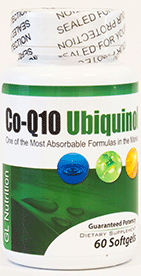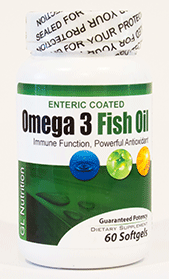What is High Blood Pressure?
As blood circulates through the body it presses against the walls of the arteries. When the pressure becomes too high this effects the arterial walls, often times distorting them, causing them to narrow or thicken. This places stress, and an extra burden on the heart.
Who Gets High Blood Pressure?
More than 50 million Americans suffer from high blood pressure, also known as Hypertension. High blood pressure effects many people from differing ages, and races. But, is particularly common among the elderly, African Americans, and people of all races in the Southeastern United states. Heredity also plays a major role in your risk factors of having high blood pressure yourself.
What are the Symptoms of High Blood Pressure?
Certain factors such as emotional stress, and exercise can cause your blood pressure to go up temporarily. Some symptoms of high blood pressure are; dizziness, unexplained headaches, nosebleeds, and sweating. Other symptoms include visual disturbances, shortness of breath, ringing in the ears, and flushed cheeks.
What are the Ranges?
The first number that your doctor will give you when you are tested for high blood pressure is called systolic pressure. This number is what is measured when the heart beats, and indicates the highest amount of pressure put on the arterial walls. In between heartbeats, the heart is at rest, so the pressure will drop to it’s lowest level. The term given for this is diastolic pressure. The first numbers given in the ranges below are the systolic pressure, and the second numbers are the diastolic pressure.
- Normal: 110-130/70-85
- High Normal: 130-139/85-89
- Mild Hypertension: 140-159/90-99

- Moderate Hypertension: 160-179/100-109
- Severe Hypertension: 108 or higher/110 or higher
What are the Root Causes of High Blood Pressure
A diet high in sugar, fats, and salt can cause high blood pressure. The use of alcohol, and caffeine, smoking obesity, inactivity, pregnancy, the use of birth control pills, smoking, and heavy metal poisoning can also be root causes of high blood pressure.
Natural Remedies for High Blood Pressure.
1. Lose Weight
Blood pressure usually increases as our weight increases, so lose some weight
2. Exercise
Exercising is a great way to lower blood pressure. It needs to be consistent and it needs to be daily. Ideally 30-45 minutes per day will do it. If that is not possible, 4-5 days a week is required. This will result in a drop of 5-7 mm Hg (millimeters) on your blood pressure readings.
3. Eat Healthy
Eating a diet that includes whole grains, fruits, vegetables and low-fat dairy products, mainly a Mediterranean diet, can lower your blood pressure by up to 14 mm Hg.
4. Avoid Salt
Even a small reduction in your salt consumption can reduce your blood pressure, so reduce it as much as possible. Salt is used as one of the primary tools for people whose blood pressure is too low and they need to increase it fast; they consume salt. That should tell you that reducing your salt intake will lower your blood pressure.
5. Reduce Alcohol
A small amount of alcohol is fine and in some cases beneficial, but more than 1 drink a day can increase your blood pressure.
6. Do not Smoke
Every time you smoke, you increase your blood pressure for few minutes because nicotine causes the arteries to narrow and constrict.
7. Reduce your Stress
Stress increases everyone’s blood pressure. If you already have high blood pressure, stress will increase your blood pressure even higher. So, take steps to put yourself in situations where you have less stress in your life.
8. Include the right supplements in your natural remedies for high blood pressure regimen:
All of these supplements are essential to lower high blood pressure and strengthen your heart:
 |
Olive Leaf Extract– Take 1 capsule, 2 times a day with food.Researchers using 1,000 mg per day of olive leaf extract in a controlled clinical trial documented an average 11.5 mm Hg decline in systolic readings and a 4.8 mm Hg drop in diastolic readings within eight weeks |
 |
Garlic with Parsley– Take 1 capsule, 3 times a day with food. |
 |
Co Q 10– Take 2 capsules, 3 times a day with food. Co Q10 is a nutrient that has been shown to lower blood pressure.Make sure you take this UBIQUINOL form which is multiple times better absorbed from the usual ubiquinone form. |
 |
Enteric Coated Fish Oil – 700 mg EPA/DHA per capsule, for ultimate absorption and effectiveness.Take 1 capsule, 3 times per day after eating. |
*Please check with your doctor before taking any supplements, and also read the warning labels on each product, especially if you are pregnant or breast-feeding. Also read the labels carefully when giving your child any natural supplement, to ensure that it is safe to give a child.





